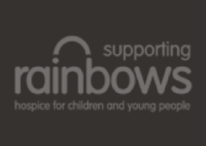
Top Indicators You're on Track to Land the Job
Interview processes can be a nerve-wracking experience, especially when you're unsure how well you're doing. However, sometimes hiring managers drop hints that you’re a top contender. Here are the key signs to look for:
1. The Interview Becomes More Casual
If the interviewer starts blending casual conversation with formal questions, it’s a sign they’re impressed and want to get to know you better. Recruiters often switch to casual talk if they feel the candidate is comfortable and confident.
2. The Interview Runs Longer Than Scheduled
If your 30-minute interview extends by an extra 10-20 minutes, it’s a positive indicator. Hiring managers taking more time for in-depth questions shows they’re seriously considering you. An extended interview often means the conversation is engaging and the employer or recruiter values your potential. When we call our candidates for feedback after their interviews, one of the first questions we ask is what time did the interview finish? This usually gives us a good indicator of how well the candidate did (not always!), and some have come out over an hour longer than scheduled which is always a positive sign.
3. Positive Body Language from the Interviewer
Nonverbal cues such as maintaining eye contact, nodding in agreement, and smiling are good signs. Interviewers often warm up and display positive body language if they’re interested in you as a candidate.
4. Use of "When" Instead of "If"
Phrases like “When you start working here…” or “When you meet the team…” suggest the interviewer is confident in hiring you. Frequent use of "when" indicates they already see you as part of the team. This is a key one - they are already projecting you in their mind into the future and can see you working there and part of the team. Pay close attention to this one.
5. Prompt Follow-Up Communication
If you receive follow-up emails or calls soon after your interview, it’s a strong indicator. Companies that maintain consistent engagement with top candidates show their interest through timely communication. Top candidates will be in demand and no one wants to miss out on talent to their competition - so if companies are impressed they should (hopefully!) move fast to secure that second interview.
6. Tour of the Company
Being given a tour of the building is a clear sign of interest. It often means the hiring manager is trying to sell the company to you and sees you as a potential fit. In virtual settings, being invited for an in-person visit or second interview also demonstrates strong interest.
7. Introduction to Team Members
Meeting the team during your interview suggests the company is assessing how well you’d fit in. It’s one of the most positive signs, indicating they’re trying to sell you on the company culture and team dynamics.
8. Discussion of Salary Expectations
When the conversation shifts to salary expectations, it’s a clear indicator you’re being seriously considered. This topic is typically reserved for top candidates.
9. Questions About Benefits and Perks
If the interviewer starts discussing benefits and perks, it’s a good sign. Moving from qualifications to benefits suggests they see you as a potential employee and want to ensure you’re happy with what’s offered.
10. Transition and Start Date Discussions
Questions about your availability to start or notice period with your current employer indicate a readiness to hire. Discussions about start dates are green flags that you’re being seriously considered.
11. Invitation for a Second Interview
Receiving an invitation for a second interview means you’ve made it past the initial screening. The second interview often includes more specific questions and deeper discussions about the role’s challenges and expectations.
12. Positive Feedback During the Interview
Receiving positive feedback during or immediately after the interview is a rare but strong sign of success. If the interviewer praises your performance, you’re likely a top contender.
13. Requests for Additional Documentation
If the interviewer asks for more documents, such as a portfolio or letters of recommendation, it shows they’re seriously evaluating your candidacy. They want to gather more information to make an informed decision.
14. Asking for References
Being asked to provide references is a significant indicator that you’re a leading candidate. They want to verify your qualifications and past performance before making a final decision.
15. Seeking Your Impressions
When the interview feels like the company is auditioning for you, it’s a great sign. They might seek your feedback on the company or give detailed insights about the role, hoping for a positive response.
Signs You Might Not Get the Job
Just as there are positive indicators, there are also signs that you might not be moving forward. If the interview is cut short or you don’t get clear information about the next steps, it’s usually a bad sign. Generic or delayed responses to follow-up emails also indicate lower interest. If you're not a good fit, employers often thank them for their time and indicate a decision will be made in a few weeks. If you email to inquire and receive a generic response or a delayed reply, it might mean you’re not in the running.
Remember, job searching is a process, and sometimes it takes a few tries to find the perfect fit. Keep pushing forward—your ideal job might be just around the corner!
For more career advice and job opportunities, stay connected and keep exploring new possibilities.
- Recruitment
- Our Services
- Insight
- Contact
- Call 0116 254 5411
- hello@precision-people.uk
- Social







